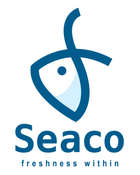Can Cancer Patients Enjoy Seafood in Singapore?
If you or a loved one is battling cancer, you may be wondering if seafood is a safe and healthy food option. Seafood is a popular food choice in Singapore, and it is known for its health benefits. However, when it comes to cancer patients, there are certain considerations and precautions that need to be taken into account.
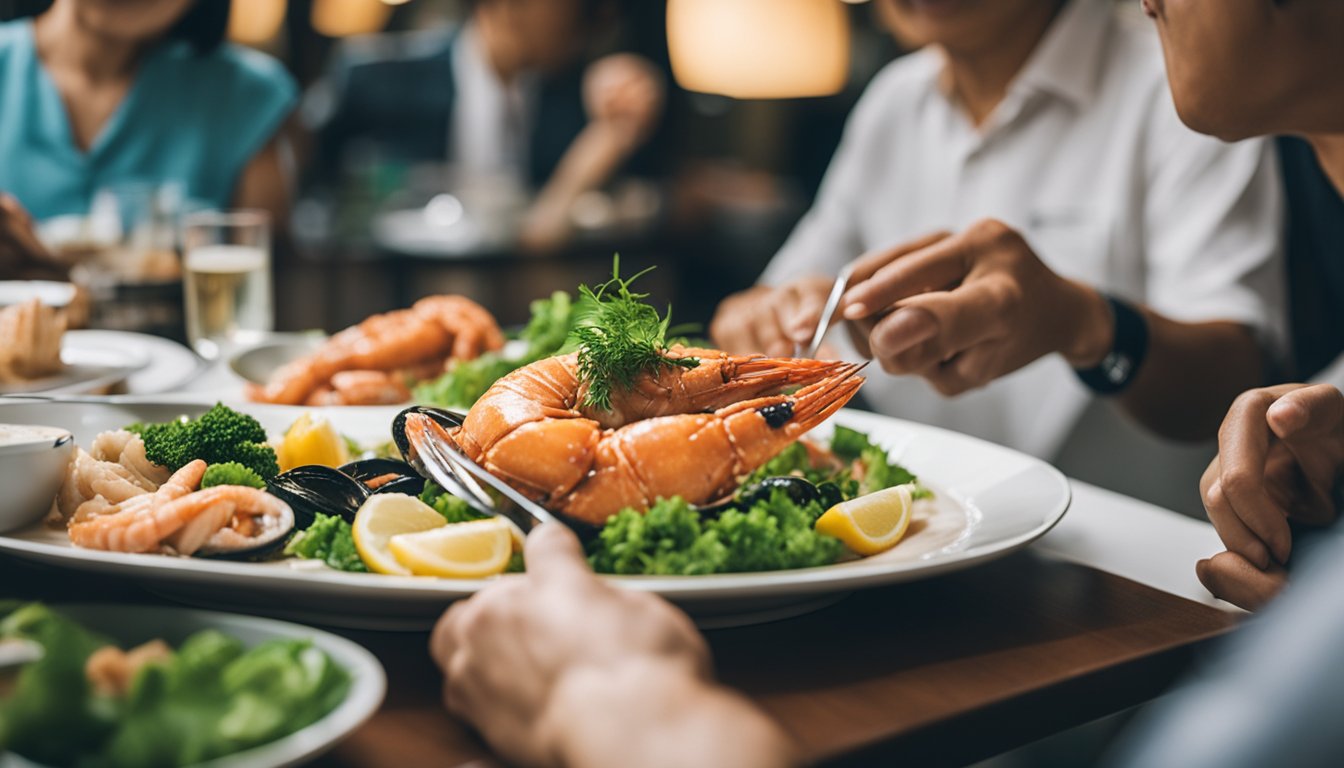
Seafood is a rich source of protein, omega-3 fatty acids, and other essential nutrients that are important for cancer patients. It is also low in fat and calories, making it an ideal food for those who are trying to maintain a healthy weight. However, not all types of seafood are created equal, and some may be better for cancer patients than others.
Key Takeaways
- Seafood is a healthy food option for cancer patients due to its high protein and nutrient content.
- Cancer patients should be cautious when consuming seafood due to the risk of foodborne illness and contamination.
- Recommended seafood types for cancer patients include low mercury fish and shellfish, such as salmon, sardines, shrimp, and crab.
Benefits of Seafood for Cancer Patients
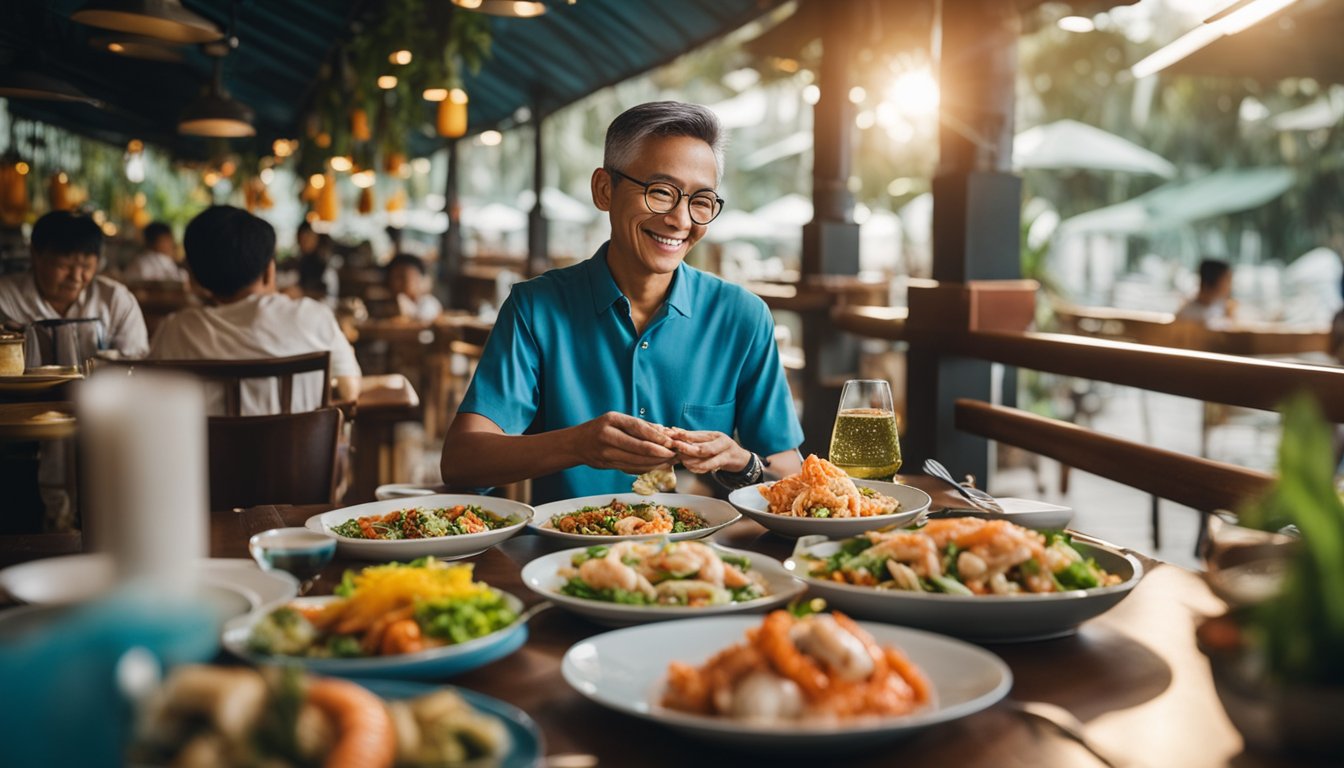
If you or someone you know is undergoing cancer treatment, you may be wondering if seafood is a good option for you. The good news is that seafood can be a healthy and delicious addition to your diet. In this section, we will explore the nutritional value of seafood and the role of omega-3 fatty acids in cancer treatment.
Nutritional Value
Seafood is a great source of protein, vitamins, and minerals. It is also low in saturated fat and high in omega-3 fatty acids. Some of the key nutrients found in seafood include:
- Protein: Essential for building and repairing tissues in the body.
- Vitamin D: Helps the body absorb calcium and maintain healthy bones.
- Vitamin B12: Important for nerve function and the production of red blood cells.
- Iron: Helps transport oxygen throughout the body.
- Zinc: Important for immune system function and wound healing.
Omega-3 Fatty Acids and Their Role
Omega-3 fatty acids are a type of polyunsaturated fat that are found in seafood. They have been shown to have a number of health benefits, including reducing inflammation, improving heart health, and potentially reducing the risk of cancer.
In cancer treatment, omega-3 fatty acids may help to reduce inflammation and improve the effectiveness of chemotherapy. Some studies have also suggested that omega-3 fatty acids may help to reduce the risk of cancer recurrence.
Overall, incorporating seafood into your diet can be a great way to get the nutrients your body needs during cancer treatment. Just be sure to choose low-mercury options and cook your seafood thoroughly to reduce the risk of foodborne illness.
Considerations and Precautions
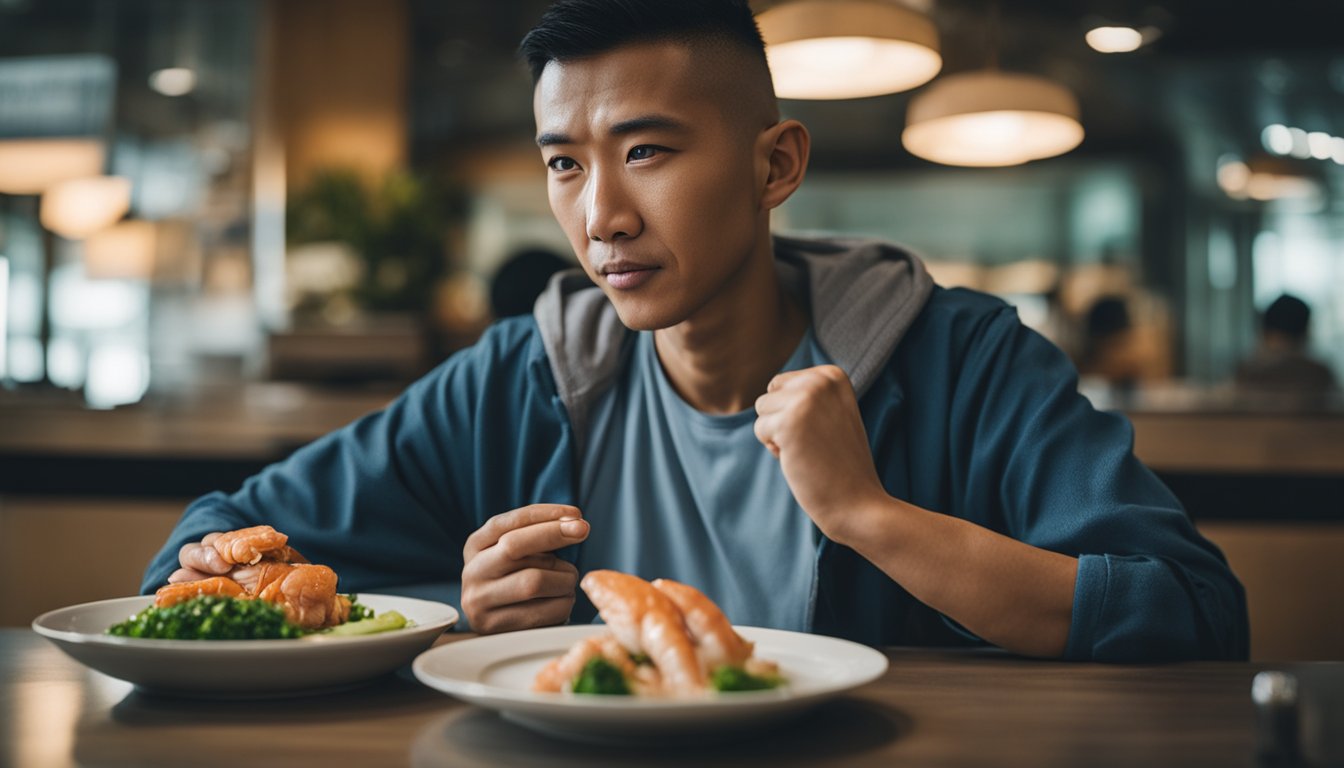
If you are a cancer patient in Singapore, you may be wondering whether it is safe to eat seafood. While seafood can be a healthy source of protein and omega-3 fatty acids, there are some considerations and precautions you should keep in mind.
Risk of Contamination
One of the main concerns with eating seafood is the risk of contamination with harmful substances like mercury, polychlorinated biphenyls (PCBs), and dioxins. These substances can accumulate in the flesh of fish and shellfish, especially those that are high up in the food chain.
To reduce your risk of contamination, you should choose seafood that is low in mercury and other toxins. The Health Promotion Board in Singapore recommends that people limit their intake of high-mercury fish like shark, swordfish, and king mackerel. Instead, you should choose lower-mercury options like salmon, sardines, and shrimp.
Dietary Restrictions and Allergies
Another consideration when it comes to eating seafood as a cancer patient is any dietary restrictions or allergies you may have. For example, if you are undergoing treatment that weakens your immune system, you may be advised to avoid raw or undercooked seafood to reduce your risk of foodborne illness.
You should also be aware of any allergies you have and avoid seafood that could trigger an allergic reaction. Common seafood allergens include shellfish (such as prawns, crabs, and lobsters), fish (such as salmon, tuna, and cod), and molluscs (such as oysters and clams).
If you are unsure about whether it is safe for you to eat seafood, you should talk to your doctor or a registered dietitian. They can help you make informed decisions about your diet and ensure that you are getting the nutrients you need while minimizing your risk of complications.
Recommended Seafood Types for Cancer Patients
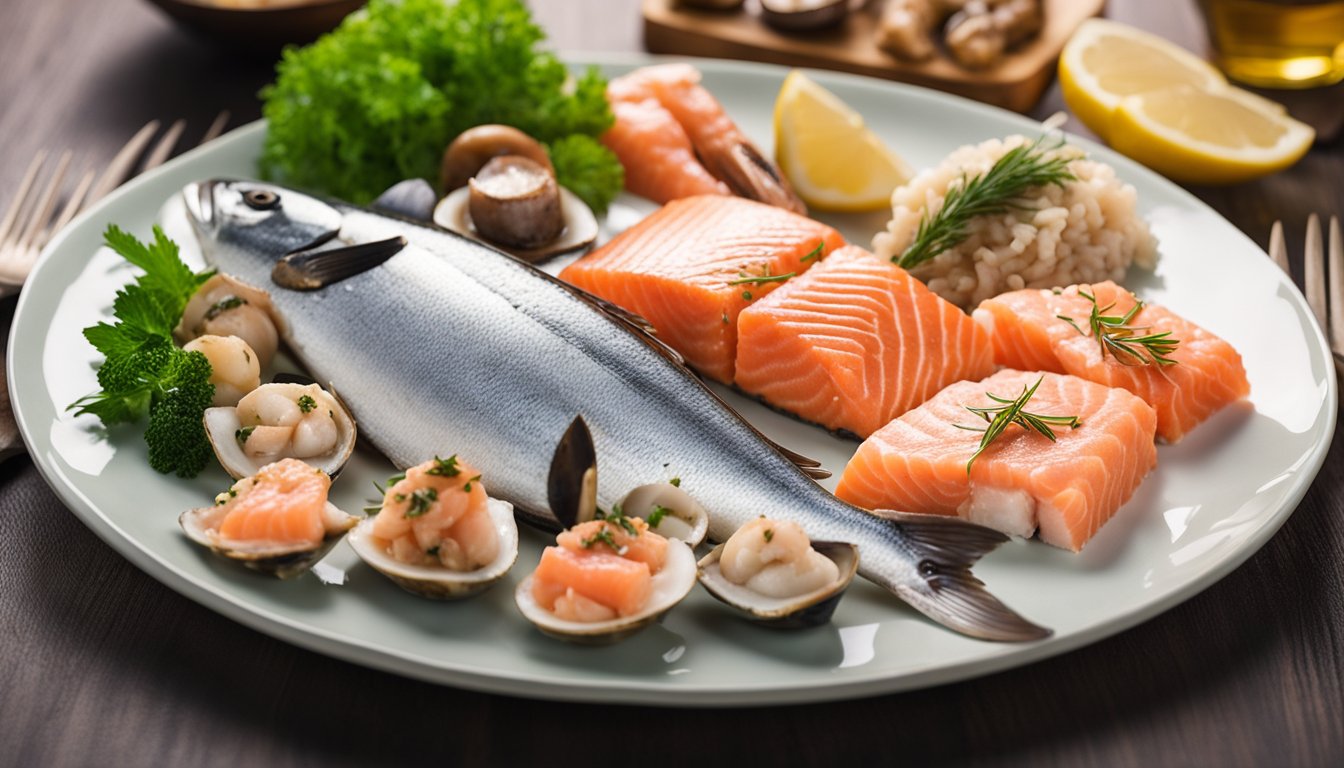
If you're a cancer patient, you might be wondering if it's safe to eat seafood. The good news is that seafood is generally safe for cancer patients, as long as you choose the right types and prepare them properly. In this section, we'll discuss the recommended types of seafood for cancer patients and the best ways to prepare them.
Safe Seafood Choices
When it comes to seafood, there are some types that are safer for cancer patients than others. Here are some of the safest seafood choices for cancer patients:
-
Salmon: Salmon is a great source of omega-3 fatty acids, which have anti-inflammatory properties that can help reduce inflammation in the body. It's also a good source of protein, which is important for building and repairing tissues.
-
Sardines: Sardines are another great source of omega-3 fatty acids. They're also high in vitamin D, which is important for bone health.
-
Shrimp: Shrimp is low in fat and calories but high in protein. It's also a good source of vitamin B12, which is important for nerve function.
-
Cod: Cod is a mild-tasting fish that's low in fat and high in protein. It's also a good source of vitamin B12 and omega-3 fatty acids.
Preparation and Cooking Methods
When preparing seafood, it's important to choose the right cooking methods to ensure that it's safe for cancer patients. Here are some tips for preparing seafood:
-
Avoid raw or undercooked seafood: Raw or undercooked seafood can contain harmful bacteria that can cause food poisoning. Make sure to cook seafood thoroughly before eating it.
-
Choose healthy cooking methods: Grilling, broiling, and baking are all healthy cooking methods that can help preserve the nutrients in seafood. Avoid deep-frying or pan-frying seafood, as these methods can add extra fat and calories.
-
Avoid high-mercury seafood: Some types of seafood, such as swordfish and king mackerel, are high in mercury, which can be harmful to cancer patients. Stick to low-mercury seafood choices, such as salmon, sardines, shrimp, and cod.
By following these tips, you can enjoy the health benefits of seafood while still maintaining a safe and healthy diet as a cancer patient.
Frequently Asked Questions
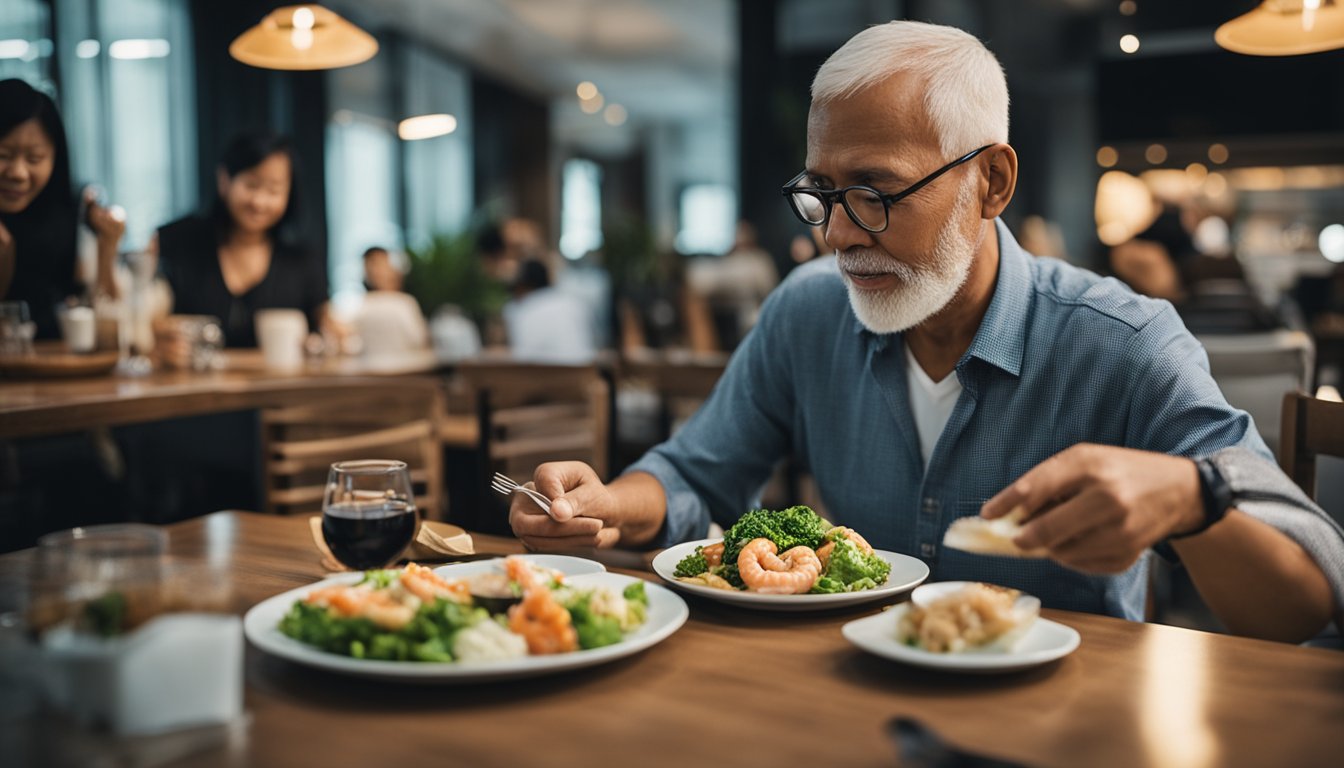
What is the ultimate 7-day meal plan to energise cancer patients?
When planning meals for cancer patients, it is important to consider their individual needs and preferences. However, a good starting point is to include a variety of nutrient-dense foods such as lean protein, whole grains, fruits, and vegetables. Seafood can also be a great addition to a cancer patient's diet, as it is a good source of protein and healthy fats. Some examples of seafood that are safe for cancer patients to eat include salmon, tuna, and shrimp. Be sure to consult with a healthcare professional or registered dietitian for personalised advice.
Are there any particular foods that cancer patients should steer clear of to maintain their health?
While there is no one-size-fits-all answer to this question, it is generally recommended that cancer patients avoid processed foods, sugary drinks, and foods high in saturated and trans fats. It is also important to limit alcohol intake, as excessive alcohol consumption has been linked to an increased risk of developing certain types of cancer. Additionally, cancer patients undergoing treatment may experience side effects such as nausea, vomiting, and mouth sores, which can make it difficult to eat certain foods. In these cases, it is best to consult with a healthcare professional or registered dietitian for personalised advice.
How can we tempt the appetite of a cancer patient with nutritious and appealing meal choices?
One way to tempt the appetite of a cancer patient is to incorporate a variety of flavours and textures into their meals. For example, adding herbs and spices to dishes can help to enhance the flavour and make them more appealing. Additionally, using different cooking methods such as grilling, roasting, and sautéing can help to create a variety of textures. It is also important to consider the presentation of the food, as visually appealing meals can be more enticing to eat. Finally, involving the patient in the meal planning and preparation process can help to increase their interest and engagement with their food.


